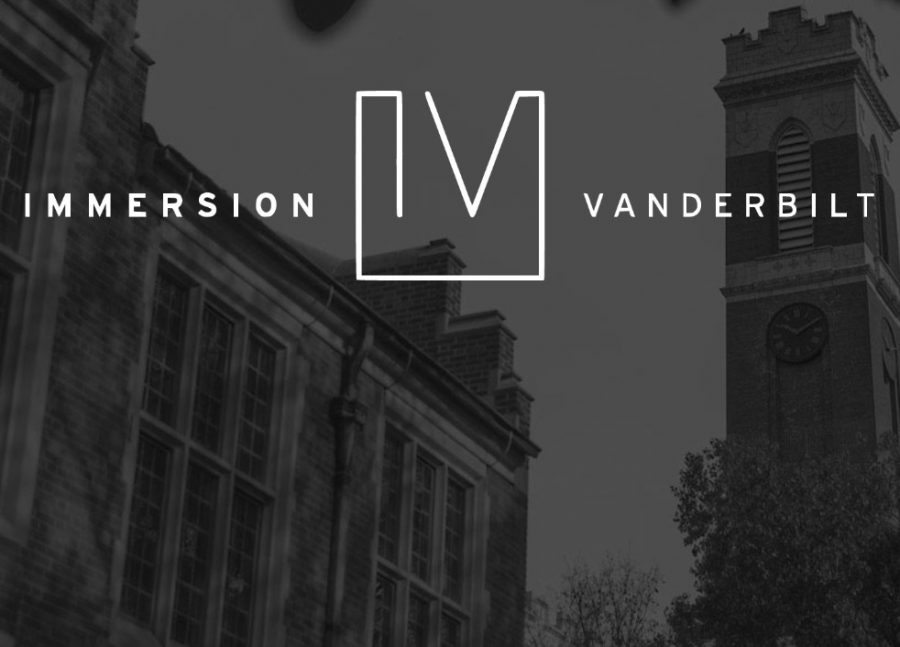Immersion Vanderbilt, a new graduation requirement beginning with the class of 2022, has officially been implemented. The program will require students to participate in an immersive educational experience of their choosing, worth nine credit hours, as part of their degree. The goal of the program is to assist students in exploring their passions at a deeper level.
The program was created as part of the Academic Strategic Plan and was largely driven by faculty members. As students explore a specific area of study, faculty members in that area will help them decide what qualifies as an immersion experience and relay that to the Office of Immersion Resources. Carolyn Floyd, Associate Director of the Office of Immersion Resources, spoke of the importance of the relationship between faculty and students during their immersion experience.
“The faculty definitely identified this as a way that students could get more out of their Vanderbilt experience, and it’s a great way for students to connect more with faculty,” Floyd said. “They’re world class faculty and it’s a great way of putting more punctuation on that relationship.”
Floyd noted that many students at Vanderbilt are already working on projects and other experiences that would qualify for Immersion Vanderbilt, such as research projects or internships in their fields of study.
“It just was a natural flow because they’re already doing these things. And so this is the way the university can put a framework on it and can support what they’re doing,” Floyd said. “They can do something tangible, they can do something that is going to last forever and it will be on their transcript.”
Although many students are already working on projects that would qualify for Immersion, there will be a structure in place to ensure all students will have the resources and information to start their project. There are three phases to Immersion Vanderbilt: explorational, experiential and the presentation of a final project.
Explorational
The explorational phase begins this fall for first-year students. The four pathways available for students to pursue are Civic & Professional, Creative Expression, International and Research. There will be programming on Commons in the fall to educate freshmen on possible immersion experiences in each pathway and the overall process, and there will also be iSeminars in the spring to continue to educate students on the program.
“It’ll give them a chance to hear about opportunities on campus, to hear about what other students have already done and give them some ideas on what they can do themselves,” Floyd said. “It’ll give them some ideas on where they can complete projects or do experiences.”
By the end of sophomore year, each student will put a plan in place with the Office of Immersion Resources. Students will fill out a form online with their tentative idea for the experience and project.
“What we’re asking students to have prepared by the time they’ve put a plan in place is an idea of what they want to do,” Floyd said. “What’s their hypothesis? What’s their question? What are they trying to discover? How do they plan on doing it?”
Experiential
Phase two of Immersion Vanderbilt is the experience that leads to the final project. It is the equivalent of nine credit hours or about 80 hours worth of work. Experiences can take the form of things like internships, work experience, study abroad, research with professors or courses in the field of study.
“It’s the equivalent of 80 hours worth of work, but I think our students are going to exceed that. I don’t think the minimum is going to be what we’re seeing,” Floyd said. “I think our students are going to do such incredible immersive experiences.”
Presentation
After gaining experience in the area of study each student chooses, they will create a final project to commemorate their experience.
“The final project can take whatever form they want it to take,” Floyd said. “It can be something like a performance piece, a research paper, a podcast or a documentary. It could be anything.”
Each final project will be showcased by the Office of Immersion Resources unless there is already a showcase available at Vanderbilt. Examples of current showcases are Senior Design Day for engineering projects and the Blair recital for seniors.
“Adding that one final punctuation mark at the end with the final project that will memorialize their experience for everyone to see and for them to refer to later, for them to show their parents, their friends, their employers and then maybe someday their kids,” Floyd said.

